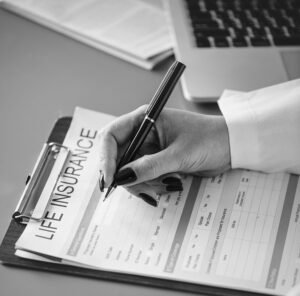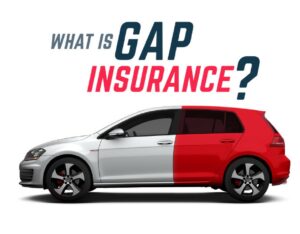 Courtesy of iii.org
Courtesy of iii.org
Coverage needs change as circumstances in our lives change; an annual insurance review will ensure you have the proper coverage for your needs and budget.
Our insurance needs change as circumstances in our lives change, which is why we recommend doing an annual insurance review. When you’re reviewing your insurance coverage, these ten questions can help you figure out whether you may need to talk to your insurance professional about making a change to your coverage.
1. Have you gotten married or divorced?
If you have gotten married, you may qualify for a discount on your auto insurance. Couples may bring two cars into the relationship and two different auto insurance companies, so take the opportunity to review your existing coverage and see which company offers the best combination of price and service.
If you are merging two households, you may need to update your homeowners insurance. And you may want to consider increasing your insurance for any new valuables received, such as wedding gifts, and for jewelry, such as wedding and engagement rings.
After getting married, it is important to review your life insurance needs. If one spouse is not working, he or she might be dependent on the working spouse’s income; if so, reviewing life and disability insurance coverage is prudent. The spouse who is not working outside the home should also consider having a separate life insurance policy because, in the event of premature death, the services he or she provides for the household would need to be replaced, and that could prove costly to the surviving spouse. Moreover, even if both spouses are working, couples often make financial commitments based on both incomes so the loss of one spouse’s income due to death or disability could be financially devastating without adequate insurance.
In the other hand, if you got divorced over the past year, you will probably no longer be sharing a car with your former spouse and have likely moved to a different residence. If this is the case, you should inform your insurer as you will need to set up separate auto and homeowners policies.
If you have recently added a child to your family, whether by birth or adoption, it is important to review your life insurance and disability income protection.
If you are planning for your life insurance to match your survivors’ expenses after your death, the new child will no doubt add to those expenses, requiring more life insurance to keep your family secure. If you plan to save for your child’s college education, life insurance can assure completion of that plan. And if you keep your current life insurance policy, don’t forget to update the beneficiary designations to include the new child.
3. Did your teenager get a drivers license?
It is generally cheaper to add your teenagers to your auto insurance policy than for them to purchase their own. If they are going to be driving their own car, consider insuring it with your company so you can get a multi-car discount. And choose the car carefully—the type of car a young person drives can dramatically affect the price of insurance. You and your teens should choose a car that is easy to drive and would offer protection in the event of a crash.
Also, encourage your kids to get good grades and to take a driver training course. Most companies will give discounts for getting at least a “B” average in school and for taking recognized driving courses.
If your teenagers move at least 100 miles from home—for example, to go to college—you can get a discount for the time they are not around to drive the car (assuming they leave the car at home).
4. Have you switched jobs or experienced a significant change in your income?
If you had life and disability insurance through your former employer, and your new employer does not provide equivalent protection, you can replace the “lost” coverage with individual policies.
In the case of an income increase, you may have taken on additional financial commitments that your survivors will depend on. Make sure to review your life and disability insurance to ensure it is adequate to maintain those commitments.
If your income decreased, you may want to cut your life insurance premiums. Term life insurance is a good option, as the premium rates are very reasonable. And if you already have two or more policies you might be able to replace both with a single policy at a lower rate because you may reach a “milestone” amount of insurance. (For example, at many life insurance companies, $500,000 of insurance costs less than $450,000 because of the milestone discount.) But don’t drop existing life insurance until after you have a new policy in place.
5. Have you done extensive renovations on your home?
If you have made major improvements to your home, such as adding a new room, enclosing a porch or expanding a kitchen or bathroom, you risk being underinsured if you don’t report the changes to your insurance company. An increase in the value of the structure of the home may require an increase to your homeowners insurance coverage limits.
And don’t overlook new structures outside of your home. If you built a gazebo, a new shed for your tools or installed a pool or hot tub, you should speak to your insurance professional.
If, as part of a renovation, you purchase furniture, exercise equipment or electronics, you may need to increase the amount of insurance you have on your personal possessions. Keep receipts and add any new items to your home inventory.
6. Have you decided to buy a second home?
If you are searching for a vacation home or a second home you might retire to, make sure you research the availability and cost of homeowners insurance before you commit to the purchase.
The very factors that make a vacation home seem ideal, whether it is a waterfront property or a mountain retreat, can often introduce risks that make it costly and difficult to insure, such as proximity to the coast and the likelihood that it will be vacant for long periods of time.
In the event you have already bought a vacation home, don’t skimp on the insurance. The risk of theft or disaster is just as significant, if not more so, in a second home as in your primary residence.
If your new property is close to the water, be sure to ask about flood insurance. Damage to your home or belongings resulting from flood is not covered under standard homeowners insurance policies. Flood insurance is available from the National Flood Insurance Program (NFIP), as well as some private insurers, and is generally sold though private agents and brokers. You can ask your insurance professional whether your home is at risk for flood, or enter your address on the NFIP website to find out whether your home is in a flood zone. If you have a very valuable home, some homeowners insurers offer excess flood coverage over and above that provided by the NFIP policies.
7. Have you acquired any new valuables such as jewelry, electronic equipment, fine art, antiques?
A standard homeowners policy offers only limited coverage for highly valuable items. If you have made purchases or received gifts that exceed these limits, you should consider supplementing your policy with a floater or endorsement, a separate policy that provides additional insurance for your valuables and covers them for perils not included in your policy, such as accidental loss. Before purchasing a floater, the items covered must be professionally appraised. Keep receipts and add the new items to your home inventory.
8. Have you signed a lease on a house or apartment?
If you are renting a home, your landlord is responsible for insuring the structure of the building, but not for insuring your possessions—that is up to you. If you want to be covered against losses from theft and catastrophes such as fire, lightning and windstorm damage, renters insurance is a good investment. Like homeowners insurance, renters insurance includes liability, which covers your responsibility to other people injured at your home, or elsewhere, by you and pays legal defense costs if you are taken to court.
Regardless of whether you are a renter or an owner, you will have the following options when it comes to insuring your possessions:
- Actual cash value pays to replace your home or possessions minus a deduction for depreciation.
- Replacement cost pays the cost of rebuilding or repairing your home or replacing your possessions without a deduction for depreciation.
Think carefully about what your financial position would be in the aftermath of a disaster, and make sure you have the type of policy that is right for you.
If you are a frequent carpool driver, whether it is to work, or ferrying kids to school and other activities, your liability insurance should reflect the increased risk of additional passengers in the automobile. Check with your insurance professional to make sure your coverage is adequate.
If you commuted regularly to your job, in retirement your mileage has likely plummeted. If so, you should report it to your auto insurer as it could significantly lower the cost of your auto insurance premiums. Furthermore, drivers over the age of 50-55 may get a discount, depending on the insurance company.
 Courtesy of
Courtesy of  Courtesy of
Courtesy of  Courtesy of
Courtesy of  Courtesy of
Courtesy of